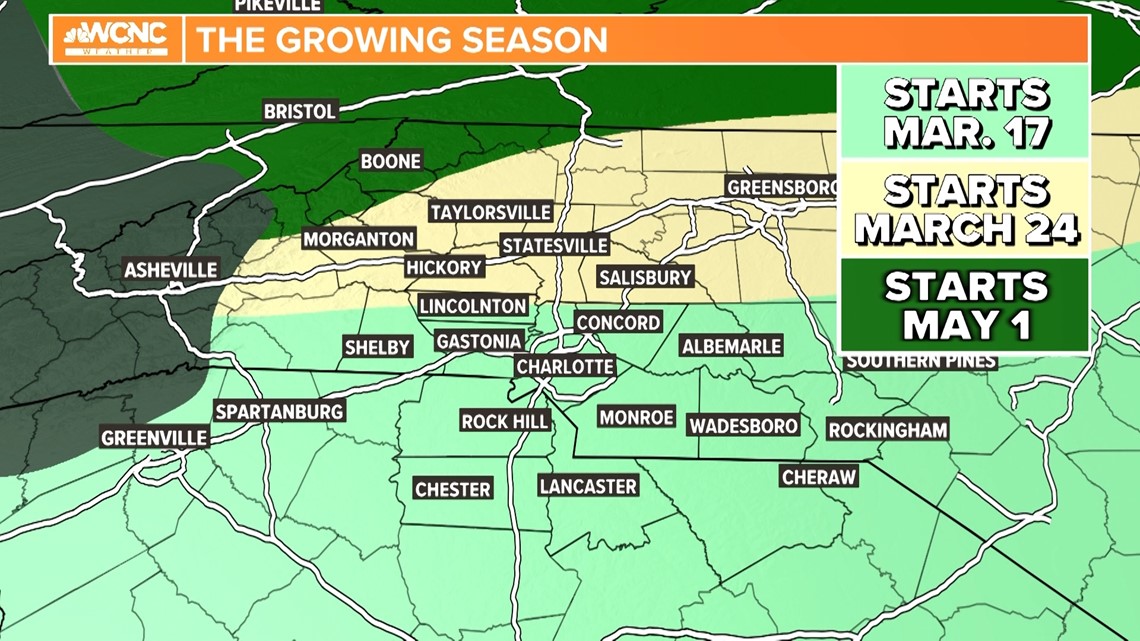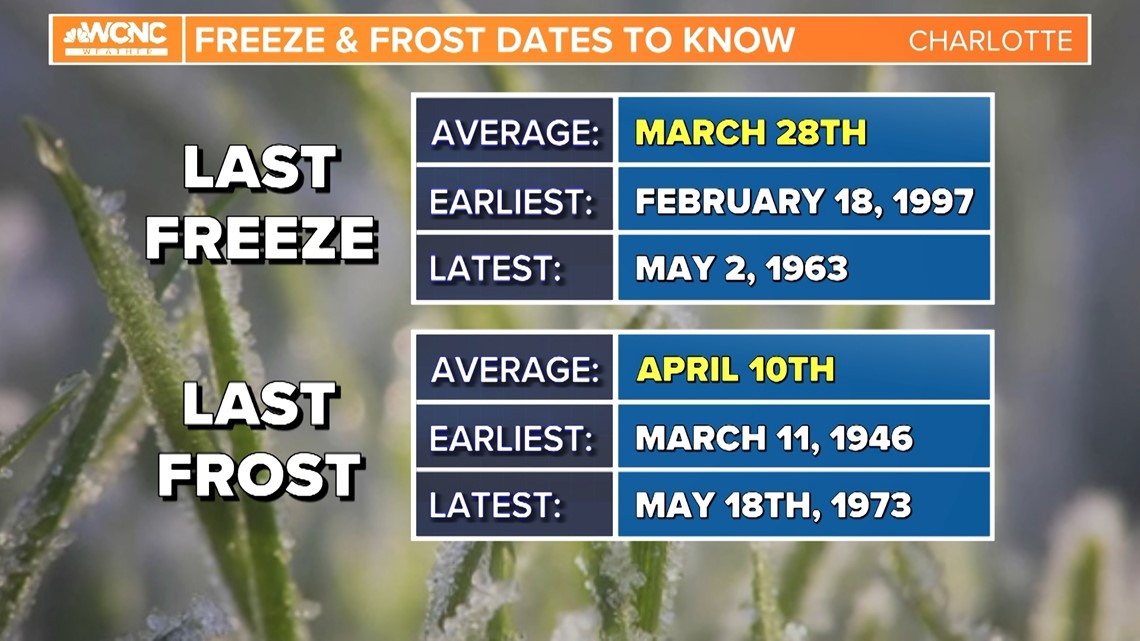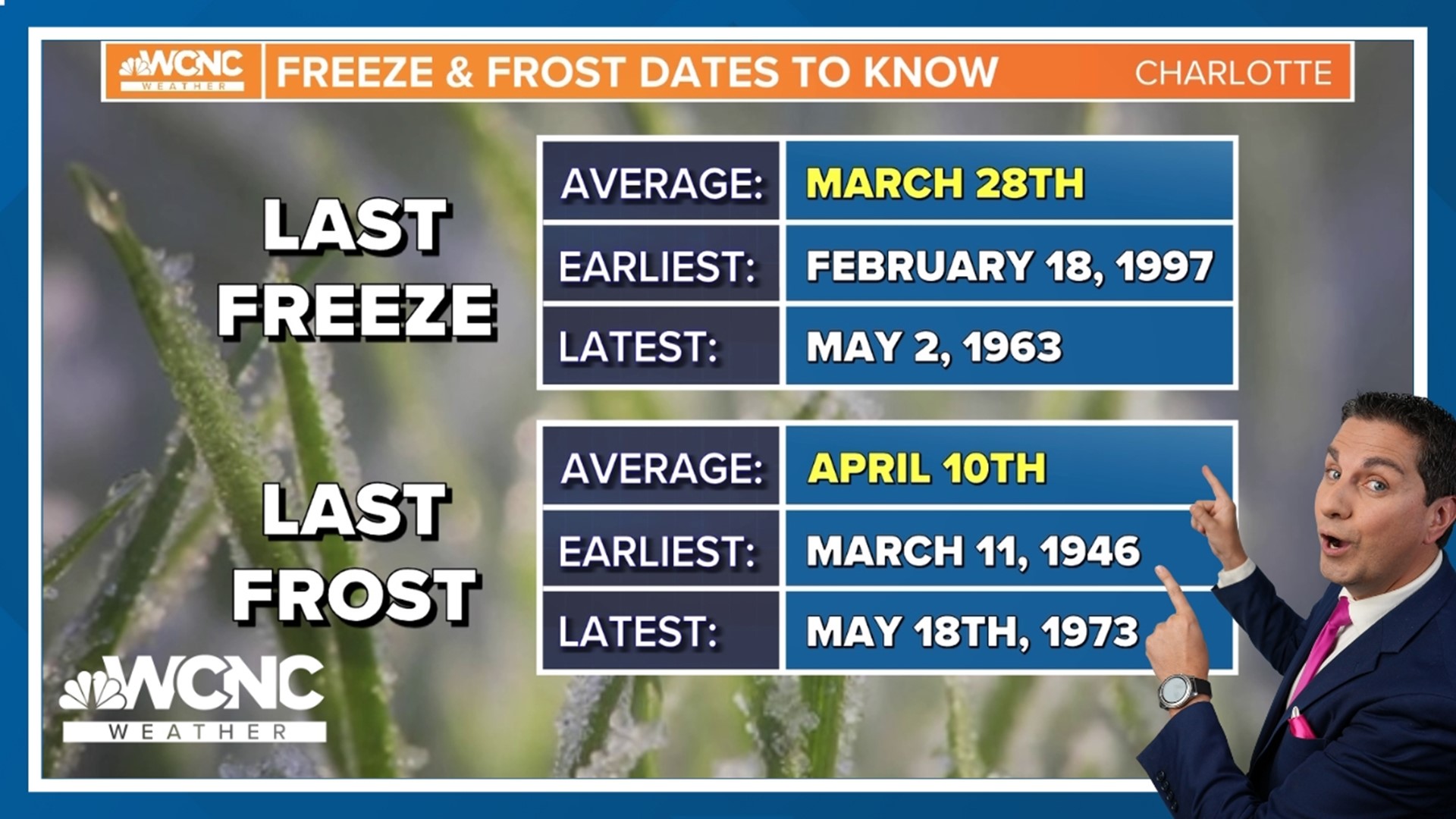CHARLOTTE, N.C. — Freezing temperatures will make a brief, but unwelcomed, return to Charlotte on Tuesday.
Brad Panovich and the WCNC Charlotte Weather Team forecast for a low-temperature Tuesday morning at 30 degrees in Charlotte. Combined with the wind, the wind chill could make it feel more like 28 degrees.
The temperatures on Tuesday are similar to the cold snap from the start of last week when morning commuters and school bus riders had to dig back out winter coats between days of 70-degree weather. Last Monday and Tuesday were the only days so far this month where morning low temperatures were actually below the average temperature range for Charlotte. All the other days have had morning temperatures above the climactic average, which for Charlotte, dates back to 1878.
Temperatures Tuesday morning will feel extra chilly because they come sandwiched between 70 degrees, which is above-average for March weather in Charlotte.
However, there has been one big procedural change since last week. Sunday marked the beginning of the "growing season" in Charlotte and some surrounding counties.
The growing season marks the period when plants and crops could have begun growing. Recent above-average temperatures have caused the blooming and budding of some plants.
While perennials may have been tricked by recent warm weather, Panovich has been warning home gardeners and farmers from starting any new crops just yet, unless they are started indoors or in a greenhouse to be transplanted after the last threat of frost.
"We're going to see another freeze by the end of the month," Panovich forewarned on March 11. "We're gonna see some overnight lows well below freezing by the end of the month, and it is still early."
Again this week, Panovich is still warning about the likelihood of one more cold snap.
"The best advice I have for you is to bring in plants," WCNC Charlotte meteorologist Chris Mulcahy said. "Frost needs to have an open sky. So if you put it even under the porch, a covering is going to help."
If you can't bring in your plants and they started growing because of recent warm temperatures, you can cover them with blankets, cardboard, sheets, towels, or even a tarp. Covering garden beds with mulch also helps protect plants from frost.
RAISE YOUR WEATHER IQ: How frost forms
It is only during the growing season when the National Weather Service, the government agency charged with issuing official weather warnings, issues freeze warnings. Outside the growing season, the agency does not issue freeze warnings during the heart of winter.


The growing season for counties such as Cleveland, Gaston, Mecklenburg, Carbuss, and Union in North Carolina -- and York, Chester, Lancaster, and Chesterfield in South Carolina -- began Sunday. Further north, where most plants won't start growing until the average temperature warms further, the growing season will begin March 24. In the highest elevations of the western North Carolina mountains, such as in Ashe, Avery and Watauga counties, the growing season does not officially start until May 1.
"So we often use that Tax Day, April 15, at the best rule of thumb for planting around here," Panovich said of the Charlotte growing season. "If you really want to wait, wait till after Mother's Day."


Charlotte's average last freeze is now March 28. Historically, it has come as late as May 2, 1963.
The last frost does not typically arrive until April 10, and as late as, May 18 in 1973.
Over the past 24 years, the average nighttime low in Charlotte was 41 degrees during March. Compare that to an average high temperature of 64 degrees.
Globally warming temperatures have adjusted the start of the growing season slightly earlier than previous decades.
Those same warming trends can be credited with securing Charlotte's longest-running drought without measurable snow. As of Monday, Charlotte has now gone 779 days with nothing more than a few flakes. January 30, 2022, was the last time snow accumulated in the Queen City.
Charlotte's official temperature and weather observations are recorded at Charlotte Douglas International Airport.
WCNC Charlotte’s Weather IQ YouTube channel gives detailed explainers from the WCNC Charlotte weather meteorologists to help you learn and understand weather, climate and science. Watch previous stories where you can raise your Weather IQ in the YouTube playlist below and subscribe to get updated when new videos are uploaded.

